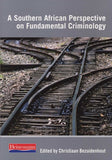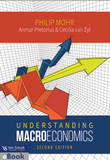
Partnering for Resilience
Low-resource environments call for evidence-based knowledge on resilience strategies. When the stressed contexts associated with low resources also include cumulative and chronic risk (such as HIV & AIDS, high unemployment levels, low household incomes and low literacy levels), demands on varied services are strained even more drastically - compelling empirical understandings of how systems can cushion the impact of stressors. Partnering for resilience is a pioneering book offering insights (spanning eight years) from longitudinal, participatory research based on a strengths-based intervention with teachers in varied schools (primary and secondary; urban and rural) in three South African provinces. Partnering for resilience presents new knowledge pertaining particularly to how existing resources can be managed to both implement and sustain resilience tactics to mediate the effects of ongoing adversity. An evidence-based intervention model (STAR: Supportive Teachers, Assets and Resilience), with validated fidelity of intervention across cases, is presented. STAR demonstrates how varied groups of teachers, who took ownership of the challenges their school communities faced, were able to formulate solutions and reach identified goals in order to create and sustain caring and supportive schools. The methodological nuances of integrating Participatory Reflection and Action (PRA) for collaborative knowledge production are unpacked with case-by-case examples. In addition, the book argues for inventive knowledge production where research integrates community engagement processes with research capacity development of postgraduate students and partners.
We Also Recommend





